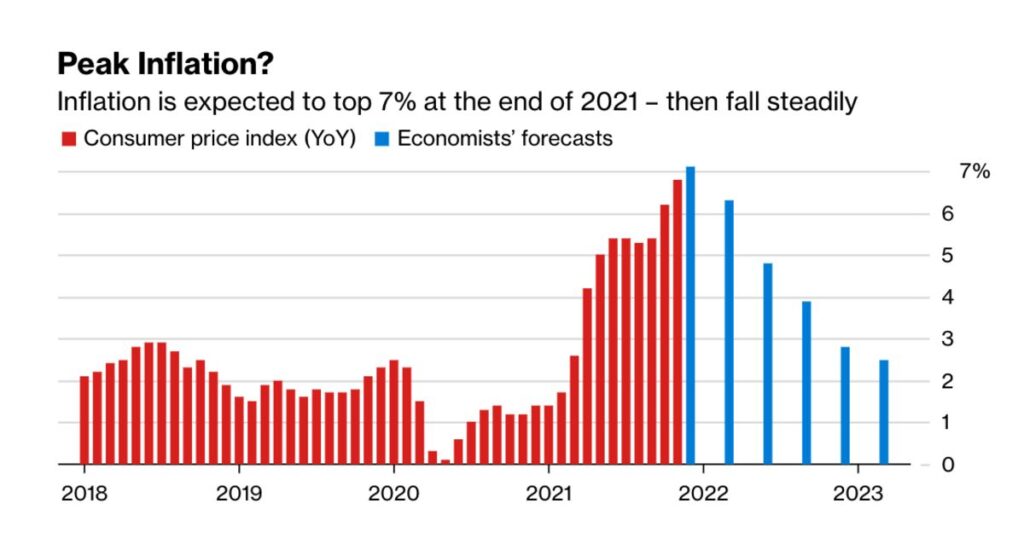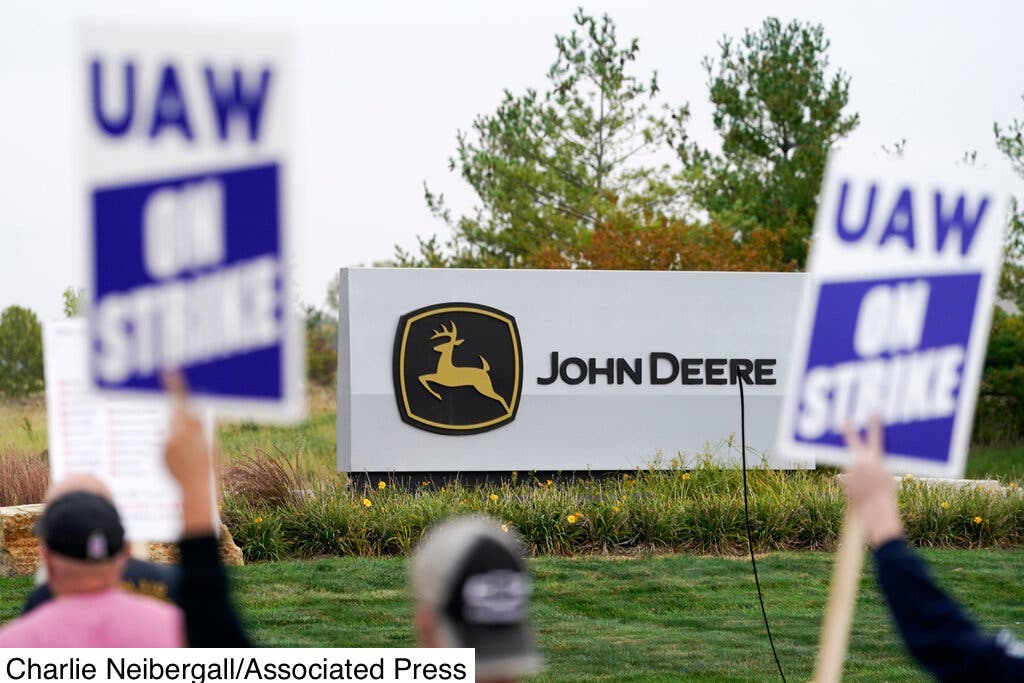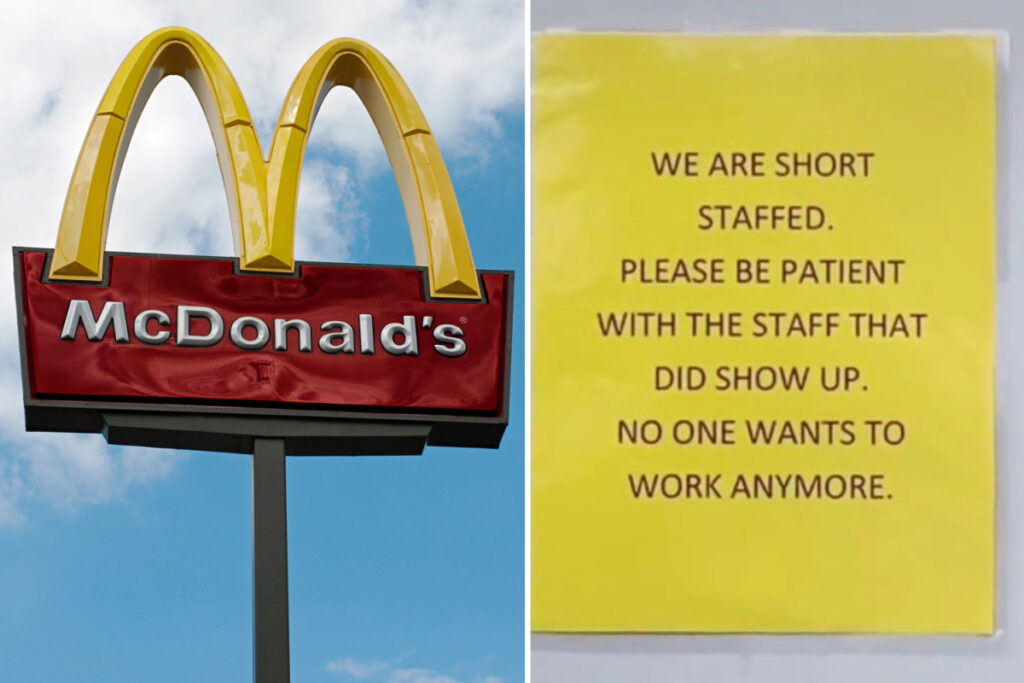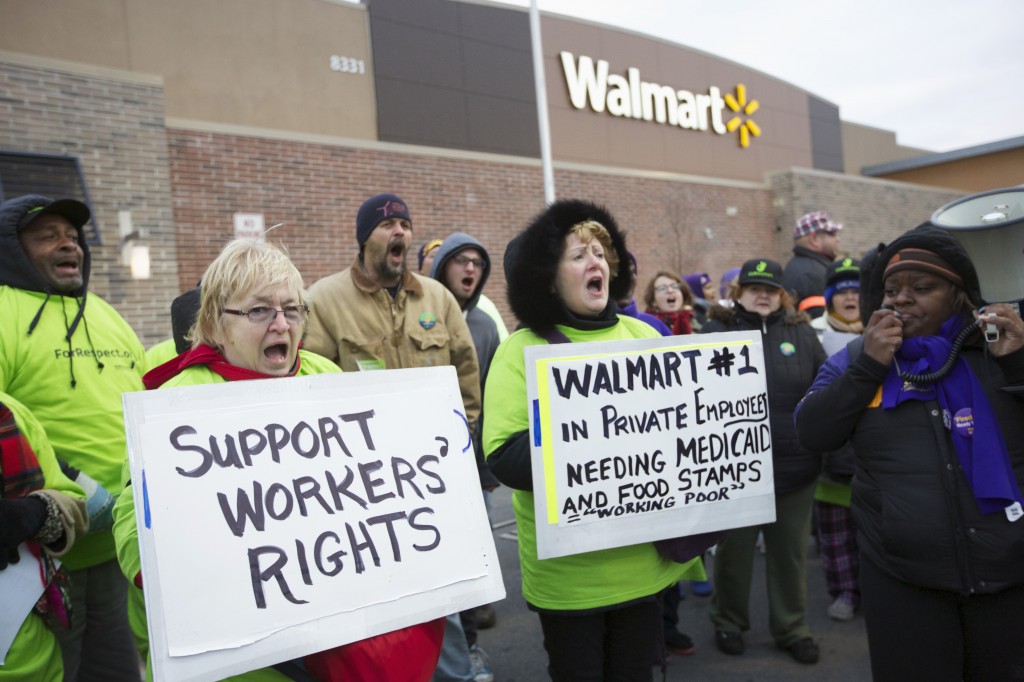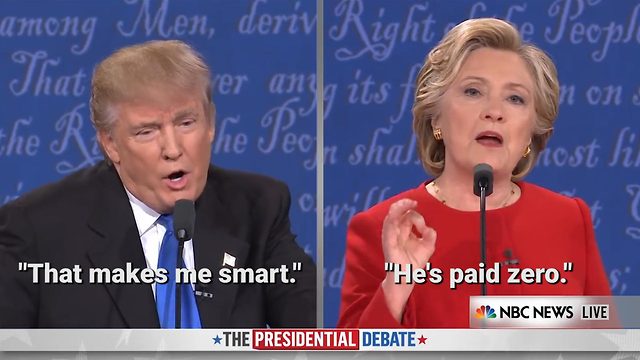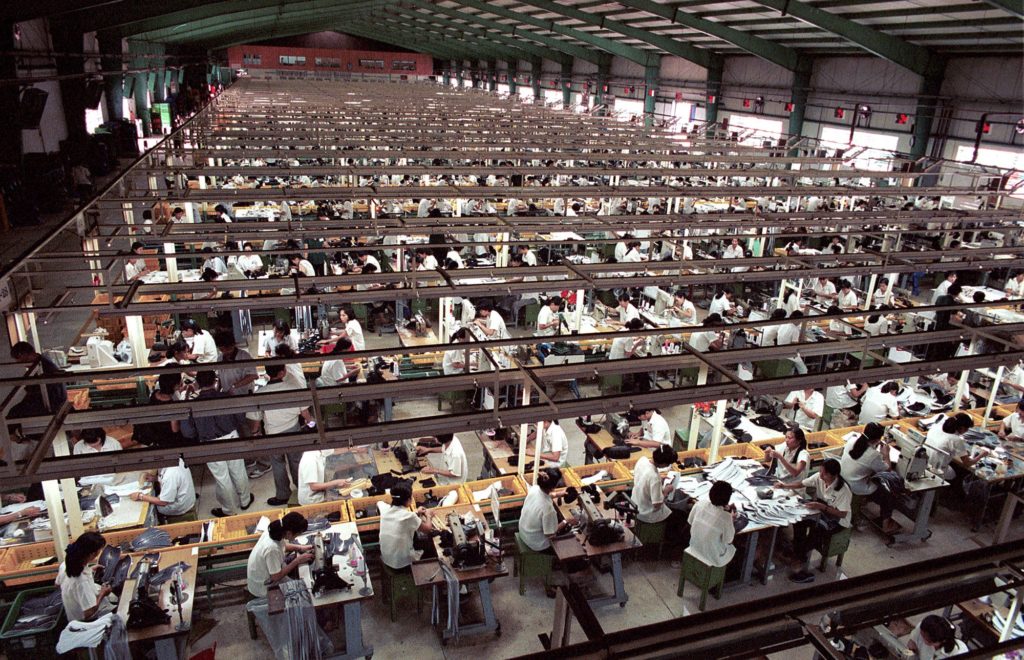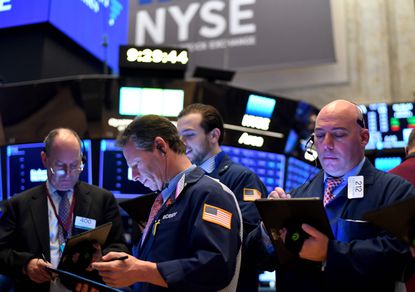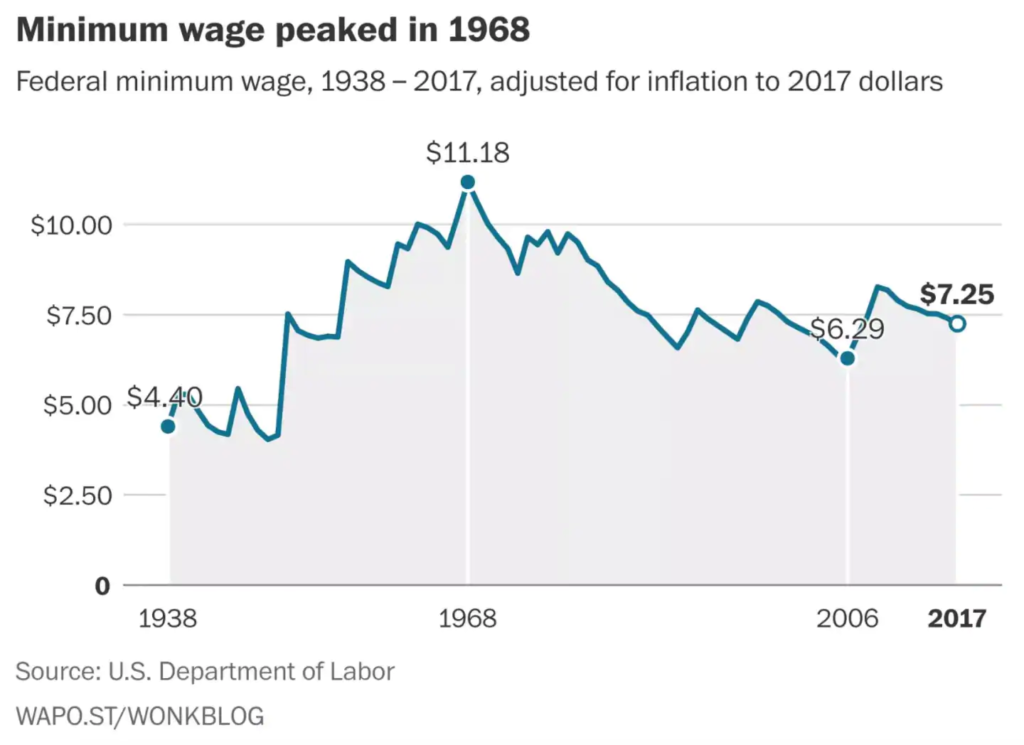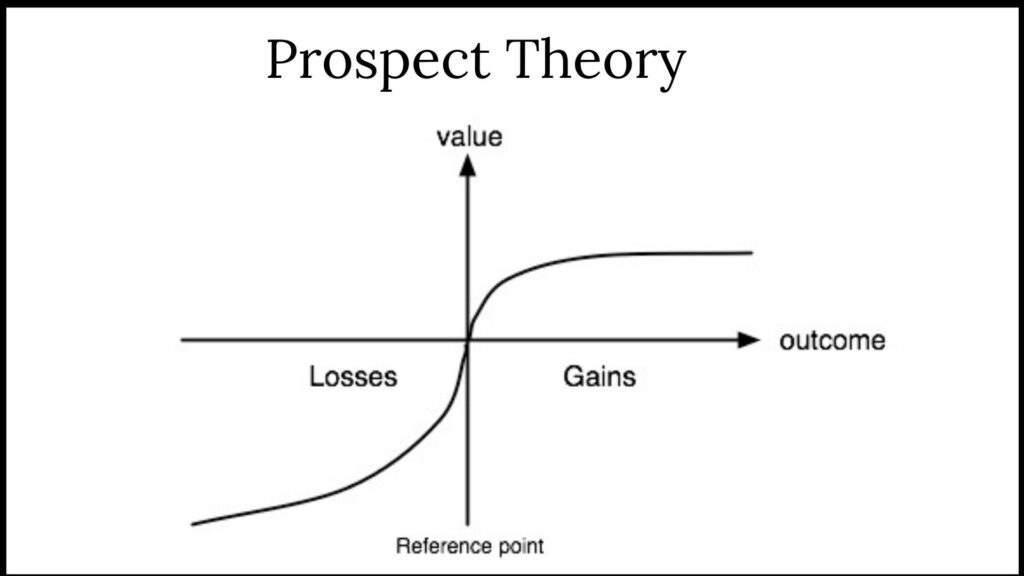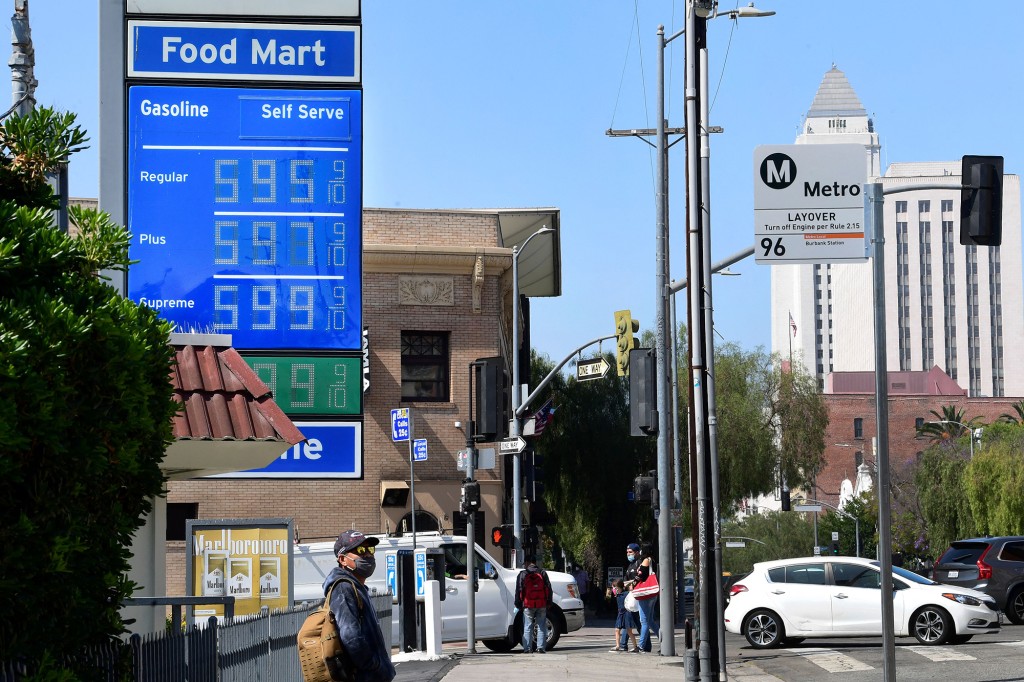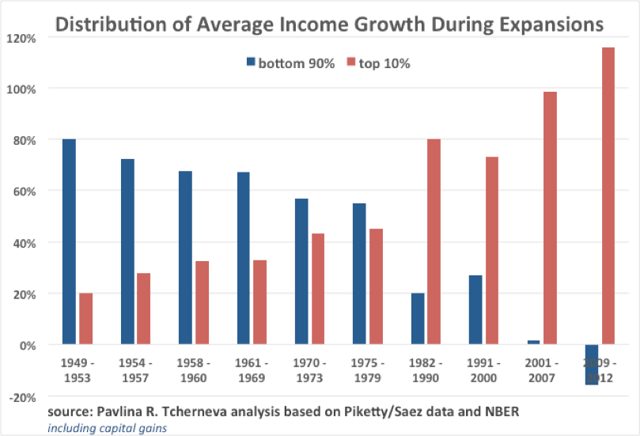Investment banks are sounding the alarm on a looming recession while consumers worry about soaring inflation diminishing their purchasing power, a plummeting stock and bond market, slow GDP growth, rising interest rates, and an equity market decline. But what do actual economic indicators of recessions currently say about the likelihood of sliding into a recession?…
What’s Driving Inflation
Soaring inflation rapidly climbed 7% in the United States through December, the fastest since 1982. The rising price index isn’t a unique phenomenon, it’s been seen globally. However, it’s been more pronounced in the U.S. than in any other country. Policy makers argue over the causes among partisan lines, but what has really been the…
The Great Labor Awakening
A great reckoning has come for the American business model of labor exploitation — will corporations choose growing labor shortages and boycotts, or employee rights and fair pay? Although the top 10 percent in the U.S. own 70 percent of the U.S. wealth, the working class holds tremendous untapped power capable of transforming the corporatist…
Starvation Wages Caused The Labor Shortage, Not Unemployment Insurance
“No one wants to work anymore,” reads one sign taped to a McDonald’s drive-thru. Many fast-food and service industry companies are reporting that they’re facing a labor shortage created by unemployment insurance. This myth has been refuted by workers and analysts’ data. The real problem is the stagnant, starvation minimum wage which if it kept…
How Taxpayers Subsidize Corporations’ Starvation Wages
A recent study proved that large corporations use taxpayer money to subsidize starvation wages which leave employees relying on public assistance programs to just survive, while executives reap billions in profit. The Government Accountability Office undertook the study at the request of Sen. Bernie Sanders to answer questions about the relationship between employers and the…
Soaring Wealth Inequality and Pandemic Profiteers: A Call for Tax Reform
Mass hunger, unemployment, sickness, and an eviction crisis are things Americans are experiencing at a level not seen since the Great Depression through no fault of their own and with no relief. The other America, the billionaire class’ wealth has seen their wealth surpass a $1.9 trillion gain since mid-March, 2020 when most federal and…
Tax Law: How the Wealthy Get Away With Evasion
While billionaires brag about tax evasion, the highest tax burden as a percentage of income falls on the poorest Americans. The lowest 20 percent of taxpayers pay a tax rate more than 50 percent higher than the top 1 percent of households. This should come as no surprise after the Panama Papers bombshell of 2016…
The Global Ethical and Economic Impacts of Outsourcing
Industrial capitalism has relied on cost minimization through cheap labor since the Gilded Age — it’s now moved overseas where it’s had unsafe, exploitative ramifications in developing nations. The decline in US manufacturing since the 1970s has without a doubt transformed the economic landscape to the detriment of non-college educated American workers. The 14.3 million…
Ban Stock Buybacks Again
Stock buybacks used to be illegal, once considered a form of stock manipulation until 1982 when the SEC passed rule 10b-18 legalizing the practice under Reagan’s failed trickle-down agenda. Over the past 10 years, companies on the S&P 500 have put $5.4 trillion into purchasing their own shares instead of investing in the economy and…
The Productivity-Inflation-Wage Gap and the Effects of a $15.00 Wage Floor
If the federal minimum wage had kept up with the 657% increase in inflation and 176% rise in worker productivity over the past 50 years, it would be $21.72. It peaked in 1968 at $11.18 when the cost of a four-year public university was $329.00, according to National Center for Education Statistics, a manufacturing job…
Are Economic Indicators Signaling a Recession?
Investment banks are sounding the alarm on a looming recession while consumers worry about soaring inflation diminishing their purchasing power, a plummeting stock and bond market, slow GDP growth, rising interest rates, and an equity market decline. But what do actual economic indicators of recessions currently say about the likelihood of sliding into a recession?…
How Too Much Loss Aversion Leads to Utility Losses
Humans aren’t perfectly rational agents that make choices that maximize utility, when faced with risky choices that could lead to big gains, people are risk-averse, preferring to settle for choices that result in lower utility but higher certainty. While loss-aversion is beneficial in many situations, heuristics and personal biases cause us to miscalculate the probability…
What’s Driving Inflation
Soaring inflation rapidly climbed 7% in the United States through December, the fastest since 1982. The rising price index isn’t a unique phenomenon, it’s been seen globally. However, it’s been more pronounced in the U.S. than in any other country. Policy makers argue over the causes among partisan lines, but what has really been the…
The Great Labor Awakening
A great reckoning has come for the American business model of labor exploitation — will corporations choose growing labor shortages and boycotts, or employee rights and fair pay? Although the top 10 percent in the U.S. own 70 percent of the U.S. wealth, the working class holds tremendous untapped power capable of transforming the corporatist…
Is Biden Responsible for the 7-Year High Gas Prices?
Since the U.S. economic reopening began, gas prices rapidly hit a 7-year national average high of $3.24 a gallon. Consumers are feeling pain at the pump and wondering if this is the fruit of President Joe Biden’s energy policies. This oil and gas sticker shock threatens to strengthen the country’s biggest inflation scare in over…
Starvation Wages Caused The Labor Shortage, Not Unemployment Insurance
“No one wants to work anymore,” reads one sign taped to a McDonald’s drive-thru. Many fast-food and service industry companies are reporting that they’re facing a labor shortage created by unemployment insurance. This myth has been refuted by workers and analysts’ data. The real problem is the stagnant, starvation minimum wage which if it kept…
How Taxpayers Subsidize Corporations’ Starvation Wages
A recent study proved that large corporations use taxpayer money to subsidize starvation wages which leave employees relying on public assistance programs to just survive, while executives reap billions in profit. The Government Accountability Office undertook the study at the request of Sen. Bernie Sanders to answer questions about the relationship between employers and the…
Soaring Wealth Inequality and Pandemic Profiteers: A Call for Tax Reform
Mass hunger, unemployment, sickness, and an eviction crisis are things Americans are experiencing at a level not seen since the Great Depression through no fault of their own and with no relief. The other America, the billionaire class’ wealth has seen their wealth surpass a $1.9 trillion gain since mid-March, 2020 when most federal and…
Tax Law: How the Wealthy Get Away With Evasion
While billionaires brag about tax evasion, the highest tax burden as a percentage of income falls on the poorest Americans. The lowest 20 percent of taxpayers pay a tax rate more than 50 percent higher than the top 1 percent of households. This should come as no surprise after the Panama Papers bombshell of 2016…
The Global Ethical and Economic Impacts of Outsourcing
Industrial capitalism has relied on cost minimization through cheap labor since the Gilded Age — it’s now moved overseas where it’s had unsafe, exploitative ramifications in developing nations. The decline in US manufacturing since the 1970s has without a doubt transformed the economic landscape to the detriment of non-college educated American workers. The 14.3 million…
Ban Stock Buybacks Again
Stock buybacks used to be illegal, once considered a form of stock manipulation until 1982 when the SEC passed rule 10b-18 legalizing the practice under Reagan’s failed trickle-down agenda. Over the past 10 years, companies on the S&P 500 have put $5.4 trillion into purchasing their own shares instead of investing in the economy and…
The Productivity-Inflation-Wage Gap and the Effects of a $15.00 Wage Floor
If the federal minimum wage had kept up with the 657% increase in inflation and 176% rise in worker productivity over the past 50 years, it would be $21.72. It peaked in 1968 at $11.18 when the cost of a four-year public university was $329.00, according to National Center for Education Statistics, a manufacturing job…
How to Feed 9.8 Billion Sustainably
By the year 2050, the UN estimates the global population will reach a staggering 9.8 billion. One of the biggest existential challenges facing this population projection will be the 70% rise of food demand. With most growth generating from developing nations, high-yield agricultural solutions based on food technology, sustainability, precision farming, and genetically engineered crops…
Mexico’s Gilded Economic Inequality
From the Spanish crown to the corrupt camarilla elite, Mexico’s leaders have long kept a strangle hold on middle-class growth in Mexico. It’s the stimulus in the Mexican negative feedback loop of political turmoil – widespread poverty in the 12th world’s largest economy is the issue to end all other issues. Poverty fuels organized crime,…
Legalization: The End to Mexico’s Drug Violence
Over a decade after former President Felipe Calderon launched a militarized crusade against drug cartels, Mexico has recorded its highest homicide rate of 19.4 since the interior ministry began keeping records, with a staggering 29,168 murders in 2017. Despite lethal military deployment and a winning ‘kingpin-strategy’ (Nieto has neutralized 89% of drug-cartel leaders on his…
No Equality without Economic Justice
Why are people with the same economic interests so divided? It’s not “economic anxiety”; a vote in Iowa is the equivalent of 5 California votes. The answer is grounded in American history spanning back 300 years when racial animosity was harnessed by elite landowners to destroy class solidarity and prevent rebellions. Divided, those with the…
Trickle-Down Economics Never Worked
Time and time again, history has proven our economy to be better under democratic presidents and, thus Keynesian economic policy. It’s no mystery as to why republican Congresses have been responsible for the last four major economic crisis in the: 1930s, 1970s, 2001, and 2008. Supply-side economics simply doesn’t work in non-Stagflation conditions. As it…
The Bipartisan Case for Single-Payer
It’s time to stop putting political ideology over the welfare of the country. In the world-power that is the United States, medical expenses have long been the number one cause of bankruptcy, with 78% of filers already having health-insurance. It should be considered a serious issue when inhabitants of the wealthiest country have to choose…

